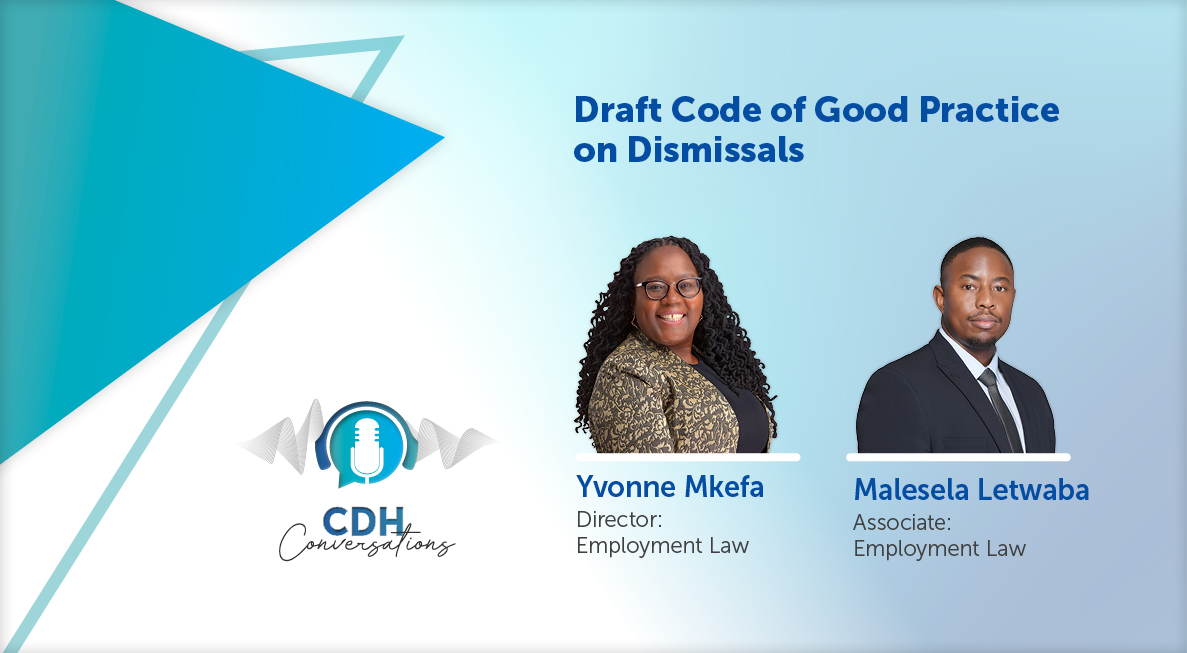The Constitutional Court’s intervention vindicates the right to a basic education at the 11th hour
At a glance
- The Moko v Acting Principal of Malusi Secondary School case centered on the right to a basic education protected by the Constitution of South Africa.
- Johannes Moko, a matric pupil, was barred from writing his Business Studies exam by the acting principal, resulting in a delay in pursuing his future aspirations.
- The Constitutional Court granted Mr. Moko direct urgent access, finding the case to be of extreme importance, and affirmed his right to a basic education, allowing him to write the exam and pursue higher education studies.
Khampepe J penned the judgment and opened with the following statement,
“There are few things as important for the flourishing of a society and its people as education. Through education, doors are opened to opportunities that were only before ever dreamt of.”
Khampepe’s words ring true - especially in a country where denial of education was core to the apartheid system.
This judgment is noteworthy for two reasons: First, the Constitutional Court (court) found the case to be sufficiently exceptional to grant the applicant, Mr Moko, direct urgent access to the court. Second, while the High Court dismissed the matter for lack of urgency, the court disagreed and found that it was of extreme importance to the future of the applicant and should be heard urgently.
Johannes Moko, a matric pupil at Malusi Secondary School in Limpopo, was set to write his Business Studies Paper 2 examination on 25 November 2020, with the rest of the matric pupils in the country. However, when he arrived at school, he was barred from writing the examination by the acting principal, on the basis that he had not attended certain extra lessons and was requested to return with his guardian to discuss the matter. None of Mr Moko’s guardians were at home, so he rushed back to the examination venue. By this time, the examination session had commenced, and Mr Moko was precluded from writing the examination.
The court was gravely concerned with this conduct since the acting principal failed to provide the court with a valid explanation for his actions. Upon escalating the matter to the Limpopo Department of Education, Mr Moko was informed that he would only be able to write the supplementary examination in May 2021. Aggrieved by this decision, and the delay that it would cause in pursuing his future aspirations, Mr Moko approached the High Court on an urgent basis for an order that he be permitted to write the Business Studies Paper 2 examination immediately.
For those who are fortunate enough to be given the opportunity, writing matric exams is probably one of the most stressful – and important – experiences a young person’s life. Unfortunately, the High Court dismissed Mr Moko’s application for lack of urgency, arguing that he would have the opportunity to write the examination in May 2021. Mr Moko then approached the court on an urgent basis. The court, in contrast to the High Court, deemed the matter to be sufficiently urgent. The court’s reasoning was that without this relief, Mr Moko would only be able to begin higher education studies in 2022, which could cause a significant adverse effect on his future.
It is, however, not ordinarily in the interests of justice for a court to sit as a court of first and last instance, but this case presented exceptional circumstances. The High Court would normally be better suited to determine urgent matters, but as stated by Khampepe J, ‘for reasons beyond any feasible comprehension, the High Court struck this matter off the urgent roll’, hence the need to grant direct access. The court concluded that the acting principal had infringed Mr Moko’s right to a basic education as he not only had a negative obligation to not infringe on Mr Moko’s right to a basic education, but also a positive obligation to ensure that this right would be fulfilled, which he failed to do.
Consequently, Mr Moko was afforded the opportunity to write his examination at the beginning of January 2021, with his results being released simultaneously with the rest of the 2020 matric class. The court’s intervention at the eleventh hour vindicated Mr Moko’s right to a basic education and placed him back on his path of pursing studies at a higher education institution.
The information and material published on this website is provided for general purposes only and does not constitute legal advice. We make every effort to ensure that the content is updated regularly and to offer the most current and accurate information. Please consult one of our lawyers on any specific legal problem or matter. We accept no responsibility for any loss or damage, whether direct or consequential, which may arise from reliance on the information contained in these pages. Please refer to our full terms and conditions. Copyright © 2026 Cliffe Dekker Hofmeyr. All rights reserved. For permission to reproduce an article or publication, please contact us cliffedekkerhofmeyr@cdhlegal.com.
Subscribe
We support our clients’ strategic and operational needs by offering innovative, integrated and high quality thought leadership. To stay up to date on the latest legal developments that may potentially impact your business, subscribe to our alerts, seminar and webinar invitations.
Subscribe




